
Prefer listening? The article is now available in podcast format as well. Just hit play.
Let’s start with the basics: what is SEO?
SEO, or Search Engine Optimization, is a complex digital marketing process designed to help a website rank as high as possible in the organic results of search engines – especially Google.
This means a site needs to be optimised technically, structurally, and in terms of content so that it meets Google’s requirements and algorithms. At the same time, the goal is to provide users with valuable information through a website that is fast, mobile-friendly, and easy to navigate.

In short, SEO helps ensure that when someone searches for a relevant phrase (for example, “marketing strategies” or “dentist in London SE1”), your website appears among the top organic results – separate from paid ads.
From the past to the future: The evolution of Google search and the beginning of the GEO era
To understand exactly what GEO optimisation means, it is important to look at how Google’s search results have changed in recent years.
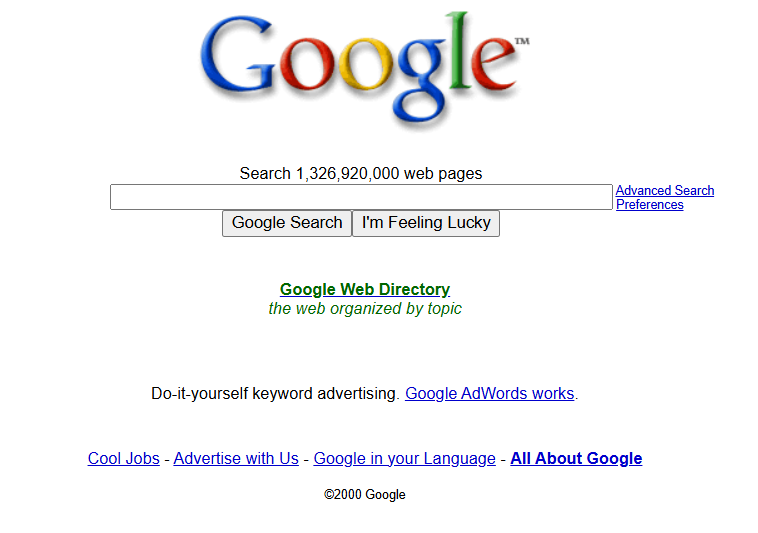
In the early 2000s, the search results consisted solely of links, meaning there were no paid ads or other featured responses in the SERP.
2003-2010 – Paid ads
Ads began to appear, first in the sidebar and then above the search results. In addition, Google introduced “universal search,” meaning that not only websites appeared, but videos, images, and news were also included in the list. This was a significant change because it was no longer just the text that mattered, but also the type of content.
2011-2013 – Structured data
The big algorithm updates, such as Panda and Penguin, came out around this time. Google started to take serious action against low-quality content and manipulated links.
The search results started to get “smarter,” with reviews, stars, and recipes appearing below the results. The structured data used on the site also began to matter.
2014-2018 – Knowledge panel
The focus shifted to mobile. If your site was not mobile-friendly, it simply dropped down the search results list.
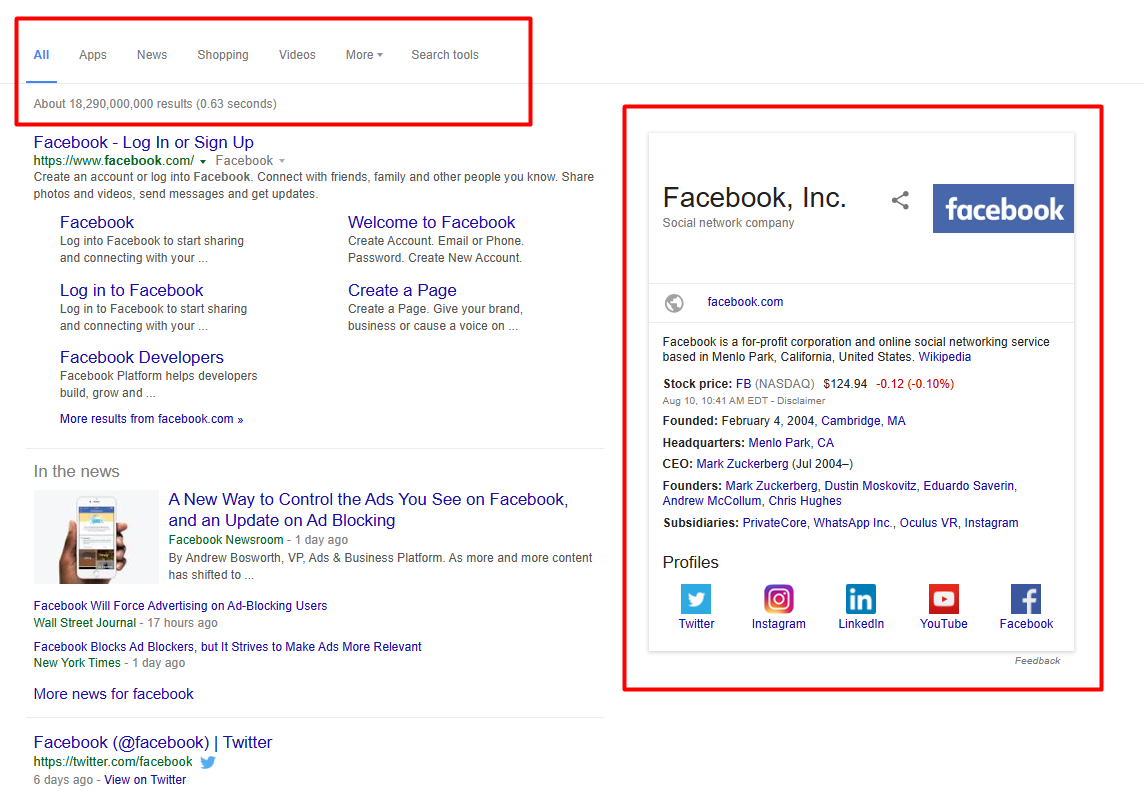
Google’s knowledge panel also appeared – for example, if you searched for a famous person, company, or movie, you could see a summary of it on the right side. These elements are very noticeable and take away a lot of attention from organic results.
2019-2022 – Featured Snippets
Google began to understand users’ search intent much better – first came the BERT algorithm, then MUM. Search results became increasingly personalized.
“People Also Ask” boxes also appeared – i.e., questions that others ask on the topic. It became increasingly important to not only use keywords, but to provide real, useful answers.
2023-2025 – Search Generative Experience, Google AI Overviews
The biggest change is that now we don’t just get results, we get specific answers – from artificial intelligence.
AI Overviews or Search Generative Experience completely transforms search. In many cases, users will get an answer from Google before they even click on anything. This means that the first organic result is no longer necessarily “first” because there is an AI-generated summary above it. From an SEO perspective, this is a huge challenge.
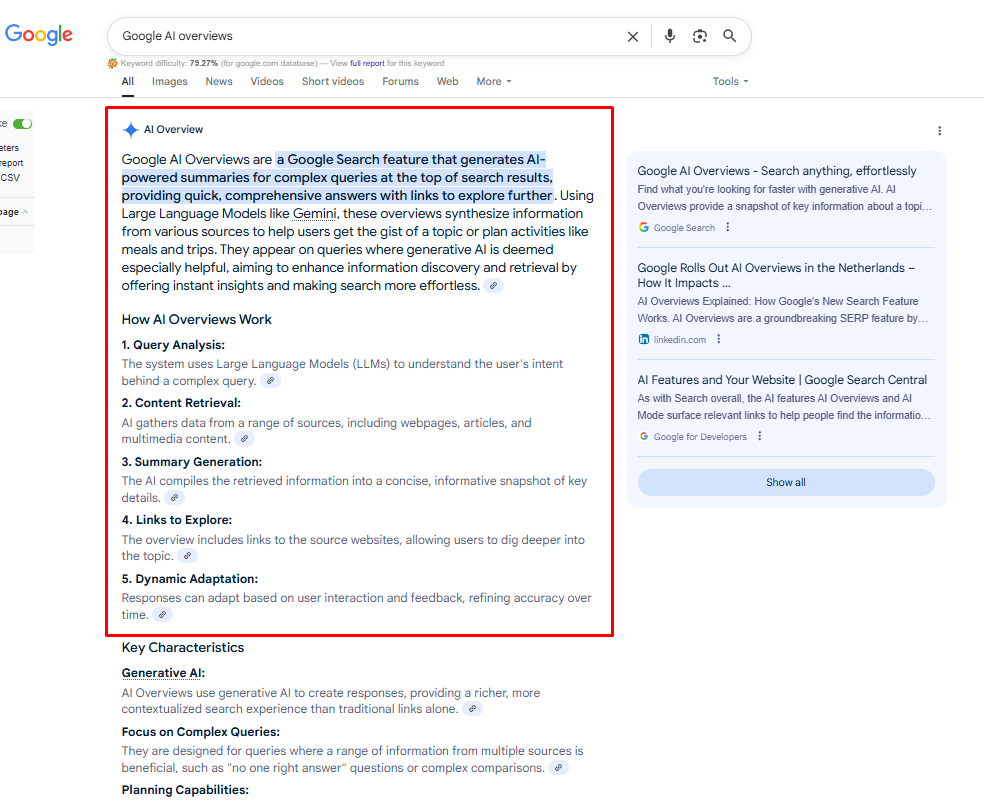
This summary appears at the top of the search results and is designed to provide a quick, coherent, and concise answer without the user having to browse through multiple web pages.
Google currently only displays the AI Overviews feature for certain types of searches. Typically, this is when the search intent is more complex or the user expects a multi-step answer.
For simple navigation queries, brand names, or sensitive topics (such as healthcare and finance), artificial intelligence is not always activated.
Step-by-Step Google Optimisation: Can You Learn SEO?
SEO is fully accessible in the UK – and the demand for it is growing rapidly. While for a long time search engine optimisation was considered the privilege of a small group of specialists, today more and more entrepreneurs, marketers, content creators, and website owners are realising that visibility on Google is no longer optional – it’s a fundamental requirement for success.
SEO in Practice: The Core Pillars
Since SEO can be learned, it makes sense to start with the fundamentals. Optimisation is a complex process, but the good news is that challenges can be addressed gradually, step by step. You don’t need to get everything perfect from the start; a progressive approach allows you to move steadily towards your goals.
1. Technical SEO
Technical SEO is one of the most important pillars of optimisation. It ensures that your website functions correctly from a technical perspective and that search engines – especially Google – can access, interpret, and index your content without errors. This process starts with the basics and covers areas such as:
- Indexability: checking whether Googlebot can access your site or if certain sections are blocked via the robots.txt file or noindex meta tag.
- XML sitemap: having an up-to-date sitemap submitted in Google Search Console helps search engines navigate your site more efficiently.
- HTTPS/SSL certificate: secure data transfer is now a must-have and is also a ranking factor.
- Loading speed and server response time: a slow site creates a poor user experience, especially on mobile, and Google penalises this. Speed can be affected by image size, unnecessary JavaScript/CSS files, and server performance.
- Mobile-friendly design: responsive and mobile usability are crucial, as most searches now come from mobile devices.
- Structured data (schema markup): helps Google better understand your content and can generate enhanced search features (e.g. star ratings, event dates, recipes).
- Error handling (e.g. 404, 301 redirects): broken or missing pages should not harm user experience or crawling.
- Avoiding duplicate content: identical or very similar pages can create indexing issues, so correct use of canonical tags is essential.
Technical SEO may not be the most visible aspect of optimisation, but it determines whether Google can properly understand your site’s structure and content. If you’d like to check whether your site performs well technically, you can use Google PageSpeed Insights – a free and very handy tool.
Want to know how your website performs in Google? Request a free SEO audit today and get practical tips to boost your rankings.
2. Keyword Research and Content Optimisation
Many people produce great content, but if it’s not built around the terms that the target audience actually searches for, it has little chance of ranking well.
Keyword research helps you understand what people are searching for and gives direction for optimising existing or new content. High-quality, SEO-optimised content should be:
- clear and directly answer the user’s query,
- well-structured (headings, lists, paragraphs),
- include relevant keywords (naturally integrated, not forced),
- fresh, unique, and original.
SEO copywriting not only helps increase organic traffic but also drives conversions. If you’re not sure where to start in the world of SEO, you can try a free SEO audit, which highlights your first areas of improvement.
3. On-Page SEO Elements
A well-written text alone is not enough. On-page SEO means that the key elements of the page are properly optimised:
- Meta title,
- Meta description,
- Page title,
- Headings (H2–H3),
- Image names and alt descriptions,
- Internal linking within content.
These aspects should be reviewed and improved page by page, as they directly contribute to your site’s ranking in Google.
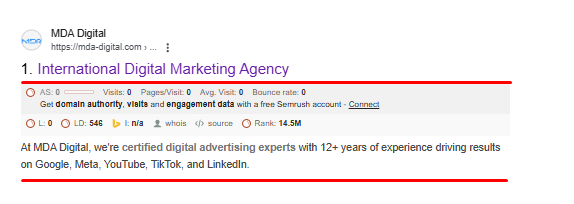
For internal links, the selected words or phrases – known as anchor text – should be chosen carefully so that they are relevant to the page they link to.
4. Link Building – Building Trust in Google’s Eyes
Google views backlinks as “recommendations” from other websites. The more trusted, relevant, and authoritative sites link to yours, the higher your site’s authority and visibility in search results. This is referred to as domain authority (DA), which directly influences your rankings.
Building a strong, natural link profile requires strategy and consistency. If links come from irrelevant or spammy sites, Google may penalise your website.
Examples of effective link-building tactics include:
- Guest posting: write professional, valuable content for relevant blogs or portals. Within these articles, you can naturally include links back to your site, increasing both credibility and traffic.
- Publishing PR articles: gain visibility on news portals or industry magazines, whether about your brand, services, or a trending topic. These not only build links but also brand awareness.
- Creating shareable, valuable content: produce guides, case studies, infographics, or other content that people will naturally want to share and link to – in blog posts, on social media, or in forums.
Link building isn’t (just) about “getting links” – it’s about providing value to others so they naturally reference you. A strong link profile reinforces the message to Google that your website is a reliable, authoritative, and trustworthy source of information in its niche.
5. Voice Search
We cannot ignore the fact that more and more users are relying on Google’s voice search function. This means that if your brand name can be pronounced differently depending on language or accent, it’s worth taking this into account in your SEO strategy.
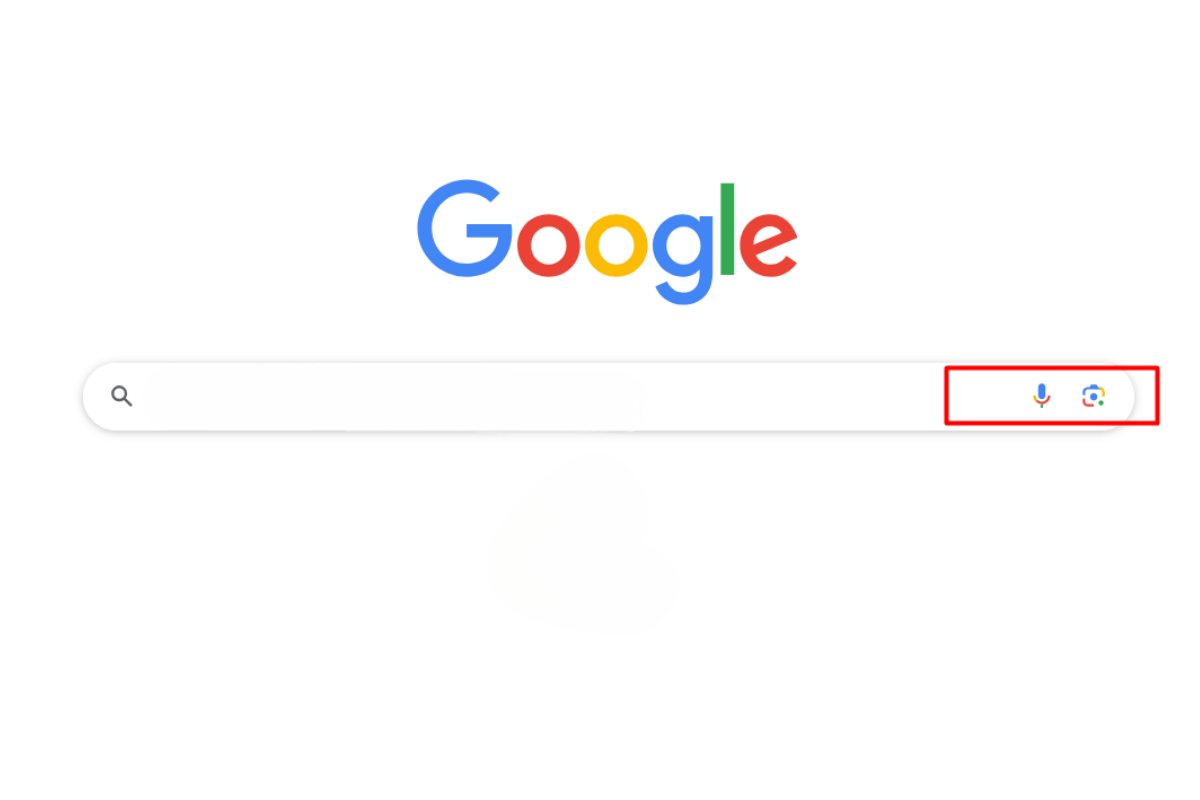
Voice search is more intuitive and much faster than the traditional method of typing queries into Google.
6. Local SEO – How Nearby Users Can Find You
The goal of local SEO is to make your business visible to people searching for solutions nearby – for example, in Google Maps results or the “near me” listings.
This strategy is particularly important if you provide services at a physical location (e.g. a hair salon, dental practice, restaurant, or car repair shop), and your target audience is actively looking for local solutions.
7. What is E-E-A-T and Why Does It Matter for UK Websites?
E-E-A-T is one of the most important evaluation criteria Google uses to assess the credibility and reliability of content. The acronym stands for:
- E – Experience
- E – Expertise
- A – Authoritativeness
- T – Trustworthiness
Google’s goal is to deliver safe, relevant, and trustworthy content to users – especially on topics that directly affect people’s lives, health, finances, or key decisions (e.g. finance, healthcare, law, education). These areas are referred to as YMYL – Your Money or Your Life topics.
8. Results: SEO is a Marathon, Not a Sprint
SEO is not a “set it and forget it” task – it’s a strategic activity that requires ongoing attention and maintenance. Without regular analysis and fine-tuning, your rankings can easily drop, and you may lose the hard-earned organic traffic you’ve built up.
That’s why it’s worth monitoring the following on a regular basis (e.g. monthly):
- Google Search Console reports
These show how Google indexes your pages, which keywords you appear for, and what errors the algorithm has detected. It’s one of the most important tools for tracking both technical and content performance. - Traffic data (e.g. Google Analytics)
Here you can see where your visitors are coming from, how long they stay on your site, where they exit, and what devices they use. This data provides valuable insights into both content effectiveness and user experience. - Keyword and page performance
Which keywords are driving traffic? Which pages bring in the most visitors? Do you have pages that have dropped in ranking or lost visibility? These answers will guide your future optimisation efforts.
SEO works best when you don’t just launch it, but also maintain, monitor, and refine it continuously. This is how you preserve long-term results and respond quickly to market changes or algorithm updates. Ready to grow your business with SEO? Get in touch with our team and let’s build a strategy tailored to your goals.
The Best SEO Tools in 2025
The good news is that SEO analysis and optimisation can be made much easier with dedicated tools that significantly simplify the workflow. Below is a summary of the key tools and when to use them:
Tool Name | Main Function | Best For |
Google Search Console | Analysing indexing errors, keywords, clicks | All website owners |
Google Analytics 4 | Visitor behaviour, traffic sources | Beginners and advanced users alike |
Ahrefs | Keyword research, backlink analysis, competitor tracking | SEO specialists and advanced users |
Semrush | SEO, PPC, content analysis, audits | SMEs and agencies |
Ubersuggest | Simple keyword research, basic analysis | Beginners and small businesses |
Rank Math (WordPress) | On-page SEO optimisation within WordPress | Bloggers and content creators |
Screaming Frog | Technical SEO audits, broken link and redirect checks | Technical SEO professionals |
SurferSEO | Content optimisation, competitor content analysis | SEO copywriters and strategists |
AnswerThePublic | Mapping out question-based searches | Blog and content idea generation |
KeywordTool.io | Collecting keywords from Google, YouTube, Amazon | Multi-platform SEO |
Why is SEO Especially Important in the UK?
Competition is less saturated than in global English markets
This means that with high-quality, well-optimised content, it is still relatively easier to achieve strong rankings in the UK search results compared to the highly competitive US market.
The specifics of British English matter
Many international SEO tools are not always perfectly tuned to UK search behaviour or spelling differences (e.g. optimisation vs optimization). This gives UK-based specialists who understand the linguistic and cultural nuances a competitive advantage.
Many UK small and medium-sized businesses still underuse SEO
This creates a huge opportunity for those entrepreneurs and organisations who are willing to invest in learning and applying SEO strategically.
How Do You Know if Your Website Needs SEO?
Most websites don’t reach their full potential – not because the content is bad, but because visitors simply can’t find them.
If your site isn’t properly optimised, Google won’t know what topics it’s relevant for. As a result, it won’t rank well – and in some cases, it may not even be indexed at all. An SEO audit can highlight issues such as:
- Low traffic from Google
This means your website isn’t appearing in well-ranked search results, or it’s not targeting the right keywords. - Competitors outrank you
If your competitors appear at the top while your site doesn’t, it shows they are actively investing in SEO – while you may lack optimisation or a clear strategy. - Slow website performance, especially on mobile
Google closely monitors page speed, particularly on mobile devices. Slow sites create a poor user experience and are automatically pushed down in the rankings. - Not mobile-friendly
Today, more than half of users browse on mobile. If your site isn’t mobile-optimised, it not only hurts your Google rankings but also causes visitors to leave immediately. - You don’t rank first even for your own brand name
If someone types in your company name but other websites (e.g. Facebook, external blogs) appear before yours, it’s a serious red flag. This usually indicates technical SEO issues, weak domain authority, or indexing problems.
It’s important to define your goals clearly before starting any SEO campaign to ensure it delivers profitable results for your business and website.
SEO Specialist or Digital Agency?
When you decide to invest in SEO, one of the first questions is: who should you work with? A freelance SEO specialist, or a digital marketing agency that offers a full range of services?
The answer depends on your goals, the size of your project, and the areas where you need support. In the UK, there are many skilled professionals – but SEO rarely works in isolation.
A good SEO specialist can deliver strong results independently – especially for smaller websites, blogs, or local businesses. However, it’s important to recognise that SEO is not a “standalone island” within online marketing.
When to Choose an SEO Specialist:
- If you have a specific SEO issue (e.g. drop in rankings, need an audit, site not indexed)
- If your budget is smaller, but you’re thinking long term
- If you prefer a more personal and flexible collaboration
- If you want to be actively involved in the process (e.g. writing content, editing your website)
When to Choose a Digital Agency:
- If you need support across multiple areas (SEO + paid ads + social media marketing)
- If your website is complex (e.g. large e-commerce store, multilingual site)
- If you expect fast, professional implementation, including at a strategic level
- If you’re focused on building a strong brand, not just achieving rankings
Our agency offers SEO solutions across multiple areas, and thanks to our holistic approach, the SEO we deliver not only satisfies search engine requirements but also creates real value for your users.


